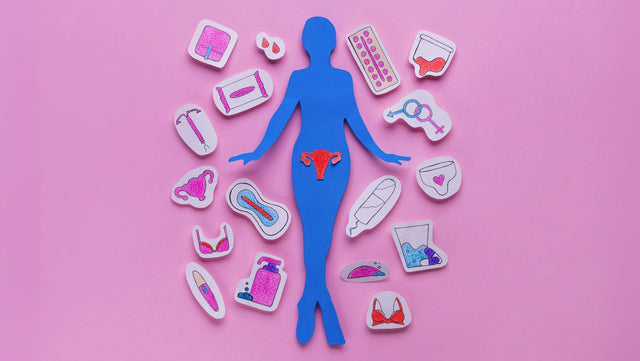Often met with a blend of curiosity and apprehension, perimenopause encompasses the gradual shift from reproductive to non-reproductive years in a woman's life, typically occurring in her late 30s to early 50s. While menopause itself is the point when menstrual cycles cease entirely, perimenopause precedes it and brings its own set of unique challenges and transformations.
Understanding Perimenopause
Perimenopause can be likened to a rollercoaster ride through hormonal fluctuations. Estrogen levels fluctuate unpredictably, causing irregular menstrual cycles, hot flashes, mood swings, and other symptoms that vary greatly from woman to woman. For some, these changes may be subtle and manageable, while for others, they can be disruptive and overwhelming. Understanding these physiological changes is crucial to navigating this phase with grace and resilience.

Physical and Emotional Changes
Physically, perimenopause can manifest in a variety of symptoms, such as:
Irregular Periods: Menstrual cycles may become shorter or longer, heavier or lighter, or more erratic.
Hot Flashes and Night Sweats: Sudden feelings of heat, often accompanied by sweating, can disrupt sleep and daily activities.
Vaginal Dryness: Decreased estrogen levels can lead to vaginal dryness and discomfort during intercourse.
Sleep Disturbances: Changes in hormone levels can affect sleep patterns, leading to insomnia or restless nights.
Emotionally, the hormonal fluctuations of perimenopause can contribute to:
- Mood Swings: Rapid changes in mood, from irritability to sadness to anxiety, are common.
- Fatigue: Feeling tired or lacking energy despite adequate rest.
- Memory Issues: Some women report experiencing forgetfulness or difficulty concentrating.
- Changes in Libido: Fluctuating hormones may affect sexual desire and arousal.
Navigating the Journey
While perimenopause presents its challenges, it also offers an opportunity for growth and self-discovery. Here are some strategies for navigating this transformative journey:
- Educate Yourself: Understanding the physical and emotional changes associated with perimenopause can help alleviate anxiety and empower you to make informed decisions about your health.
- Prioritize Self-Care: Taking care of your physical and emotional well-being is essential. This includes eating a balanced diet, exercising regularly, practicing relaxation techniques such as yoga or meditation, and getting enough sleep.
- Seek Support: Share your experiences with trusted friends, family members, or healthcare professionals who can offer support and guidance. Joining support groups or online communities can also provide valuable solidarity and insights.
- Consider Treatment Options: Depending on your symptoms and overall health, your doctor may recommend hormone therapy or other medications to alleviate severe symptoms. It's important to discuss the benefits and risks of these treatments thoroughly.
- Embrace Change: Emotionally, perimenopause can be a time of reflection and reevaluation. Embrace this period of transition as an opportunity for personal growth and exploration of new interests and passions.
Embracing the Next Chapter
Perimenopause marks a significant transition in a woman's life, signaling the approach of a new phase beyond childbearing years. While the journey may be challenging at times, it is also a time of empowerment and self-awareness. By understanding the changes occurring within your body and mind, and by nurturing yourself with self-care and support, you can navigate perimenopause with grace and resilience.
If you need extra support during this stage, there are resources available to you. Products designed to ease the burden of perimenopause may be a good choice.
Pictured: PMS Support Kit
If you have additional concerns, seek help from a health care professional.
Remember, every woman's experience is unique, and there is no one-size-fits-all approach to this journey. Embrace the changes, celebrate your strength, and welcome the next chapter of your life with open arms.
Find similar articles:
perimenopauseMentioned in this article
More stories

Top 6 Ways to Alleviate Bloating


